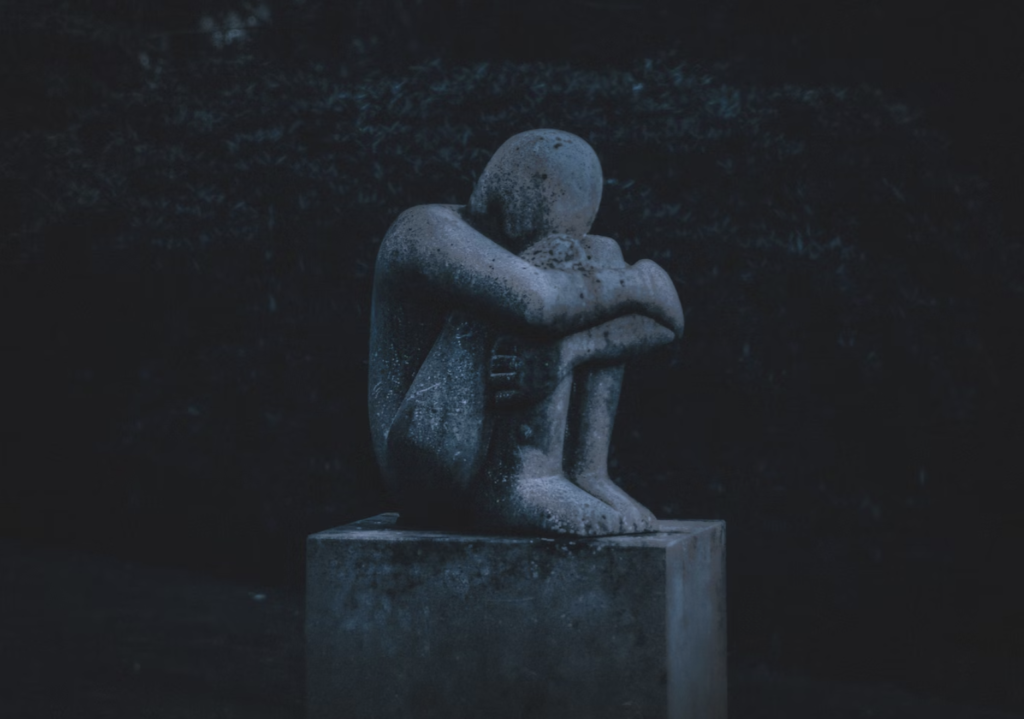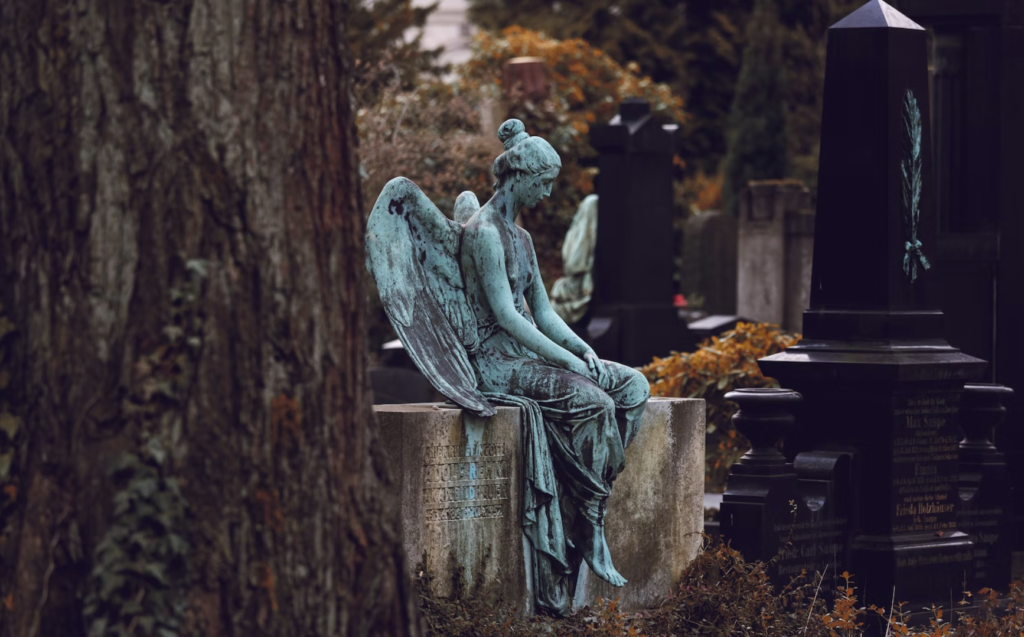
Grief is one of the most complex, powerful, and poorly understood emotions felt by humans. It comes in many ways, but the loss of a close family member is usually seen as the most painful path into grief. Grief can also strike when we are forced from our home or community, lose a job, or a friendship or romantic partnership.
In 1969, Elizabeth Kubler-Ross published On Death and Dying, which was hailed as a massive step forward in our understanding of grief. She explained there that grief can best be understood in terms of stages of other, better-known emotions. These stages are denial, anger, bargaining, depression, and finally acceptance.
While Kubler-Ross didn’t insist that the stages were sequential, they were often presented as such in popular writing. Sometimes comedians or actors in movies would run through them quickly in a sequence of over-the-top actions and monologue, reaching acceptance just a few moments after receiving devastating news.
Instead, the stages can arise at any time and sometimes several will arise virtually at once. The important thing is to see this as a map of potential territory that any grief-sufferer might pass through. How exactly they pass through it will be very personal and can depend on countless factors. And as many people will tell you, these feelings can arise again at any time, almost at random, even many years after the loss.
This month my friend, Maia Duerr, an anthropologist, writer, and Zen practitioner, wrote a touching email on her findings after a year of grief. As an anthropologist, she notes that she knew she was in foreign territory with grief and loss, so she sought out help. As a Zen practitioner, she had a wide and deep perspective on the fragility and impermanence of each precious human life. And as a writer, she captured her experience in ways we all can benefit from.
Time is needed

After noting that there is no end to grief, Maia wrote that she was grateful to have had a flexible work schedule so that she could open up to feelings as they were coming. It can be incredibly hard to need to push away the powerful feelings as we need to go to a class or a business meeting. If we can give ourselves flexibility with our time, we can also be much more gentle and flexible with the rising and falling of the many emotions that come with loss.
Grief can take a cognitive toll
Maia also writes about losing her ordinarily sharp memory and multi-tasking skills as she moved through the grief process. This is something we might not think about when encountering loss. However, all of our memories, our plans, and all sorts of emotions flood our mind as we face loss. So it makes sense that we have limited capacity to deal with other things.
With this in mind, if you are facing loss or helping others who are, it can be wise to minimize the amount of complex work needed. Things like funeral arrangements or jumping into new job applications might be far more stressful in the first days and weeks after a loss. If possible, it might be best to delay these or ask for help.
Nature heals
Another point of wisdom offered by Maia is that being in nature can be one of the greatest healers of grief. I’m not sure what it is, the simplicity of nature, or the realization that we’re just as much a part of the natural world as the human one, or something else that naturally calms the mind when we’re surrounded by nature. Whatever it is, it is a powerful force slowing down our minds and bringing us more fully into the moment.
In grief, our minds often bounce from past memories to now empty future plans in ways that make being in the present moment very difficult, if not impossible. In nature, we’re drawn into the present moment in our very bodies: listening to the sounds around us, eyes checking left and right for potential predators or other dangers, nose alert to any smells, and so on. Being in nature is like being gently pushed into meditation by your whole body and everything around you.
Healing happens

A final point that Maia makes is that healing does indeed happen. While in the midst of grief, it can often feel as if it won’t, that this will last forever. I remember when I was grieving an ended relationship around 15 years ago, I felt like I was just walking through a fog, unsure even which way was forward. My dad, in his usual “earthy” wisdom, remarked, “Sometimes everything smells bad because you’re swimming in sh*t.” It actually made me feel a bit better to hear that.
Along the journey there will be moments of unexpected joy, relief, and even exuberance. Your life will never be the same as it was before the loss or the relationship. But the worst of the grieving process will pass. Memories of the good times will begin to feel good again. Relationships with those around you will grow and evolve in unexpected and often wonderful ways.
You may find a silver lining
One of the most difficult things to hear when going through grief is that there will be a silver lining to all of this. But often this is exactly what happens. For some, it is just a new sense of connection to others who have gone through the same loss. For others, it might be a deeper connection with a person who has been lost, through new appreciation for their dreams, hobbies, or family and friends. Whatever it is, it is usually just as unexpected as it is difficult to believe that any good will ever come of the loss in the first place.
 Justin Whitaker, Ph.D., holds a doctorate in Buddhist ethics from the University of London. He has given lectures, and taught Buddhist studies and Philosophy at Oxford University, the University of Hong Kong, the University of Montana, and at Antioch University’s intensive study-abroad program in India. A certified meditation teacher, he is a regular contributor to Patheos.com, and Senior Correspondent for Buddhistdoor Global. Justin is the official blog writer for Sunflower Counseling MT in Missoula, Butte, Kalispell, Billings, and surrounding areas. He lives in Missoula with his family.
Justin Whitaker, Ph.D., holds a doctorate in Buddhist ethics from the University of London. He has given lectures, and taught Buddhist studies and Philosophy at Oxford University, the University of Hong Kong, the University of Montana, and at Antioch University’s intensive study-abroad program in India. A certified meditation teacher, he is a regular contributor to Patheos.com, and Senior Correspondent for Buddhistdoor Global. Justin is the official blog writer for Sunflower Counseling MT in Missoula, Butte, Kalispell, Billings, and surrounding areas. He lives in Missoula with his family.
